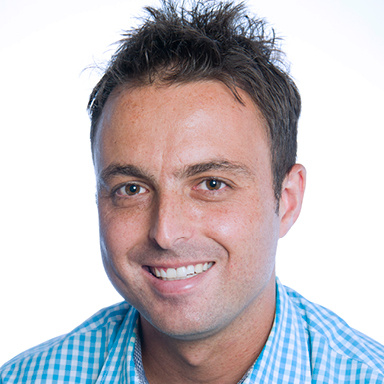What is autism spectrum condition (ASC) and how is it diagnosed?
Autism spectrum condition (ASC) shapes the way a person’s brain develops, influencing how they think, learn, and interact with others. While it doesn’t require a “cure,” the right support and therapies can make a big difference – especially if diagnosed early.
Am I on the autism spectrum?
ASC can show up in different ways and with different levels of severity, says Dr Dillon van der Haer, a paediatrician at Mediclinic Bloemfontein.
“People with more severe autism symptoms may have greater challenges with communication, social interaction, and daily tasks. They may struggle to speak, interact with others, and do simple daily tasks on their own. Many need ongoing care from their parents, even as adults.”
High-functioning autism, on the other hand, refers to those with milder symptoms. They are often very intelligent and can handle everyday tasks independently, but they may find social interactions and communication difficult.
“We need to be very sensitive when dealing with autistic patients and how we refer to them,” says Dr Van der Haer. “Some prefer the terminology ‘on the spectrum’, while others want to be called autistic or to be described as having autism. It differs from patient to patient and from parent to parent.”
He describes the autistic spectrum like a rainbow: with severe symptoms on one side and milder symptoms on the other.
“When someone is described as ‘on the spectrum’, it means they have symptoms or signs of autism but haven’t been formally diagnosed,” he says. “Many of us could be described as ‘on the spectrum’ because of behaviour that could be termed autistic, such as difficulties with social interactions, an inability to make eye contact, repetitive behaviours or obsessive interests.”
Who can diagnose ASC and how is it done?
Dr Michele van Niekerk, a paediatrician at Mediclinic Hermanus, explains that autism can only be diagnosed by certain healthcare professionals. These include paediatric neurologists, developmental paediatricians, paediatricians with expertise in brain development, child or adolescent psychiatrists or psychologists, and GPs with special training in mental or child health.
Speech therapists, occupational therapists, and nurses cannot officially diagnose autism, but they can identify signs and refer patients to a specialist for assessment.
There are different ways to officially diagnose autism. One method is a psychiatric diagnosis based on the DSM-5, a guide used by doctors to classify mental health conditions. The DSM-5 defines autism as a single condition with symptoms grouped into different categories.
To make a formal autism diagnosis, specialists need training in specific assessment tools, such as:
- DISCO (Diagnostic Interview for Social and Communication Disorders): A questionnaire-based tool used to assess autism symptoms.
- ADOS (Autism Diagnostic Observation Schedule): A test where doctors observe how a person interacts, communicates, and plays. It is usually done with children aged four and older.
- ADI-R (Autism Diagnostic Interview-Revised): A detailed interview with parents to gather information about their child's behaviour and development.
General practitioners (GPs) can use questionnaires to check for signs of autism in children. These include the Modified Checklist for Autism in Toddlers (M-CHAT), its updated version (M-CHAT R), and the Childhood Autism Rating Scale Second Edition (CARS2). These help the doctor ask parents about their child’s behaviour. If autism is suspected, the child is then referred to a specialist for a full diagnosis.
Is Asperger’s syndrome a type of autism?
Although Asperger’s syndrome was previously classified by the DSM as a separate condition, it has been considered an autism spectrum condition for more than a decade. Patients are no longer diagnosed with Asperger’s but as having level 1 autism.
Why early diagnosis is critical
“The older a person, is the harder it becomes to diagnose autism,” says Dr Van Der Haer. “This is why doctors try to screen children from 18 months, which is the earliest you can see the signs of autism.” The more severe symptoms are easier to identify, he adds.
“The earlier that patients are formally diagnosed, the sooner they can receive therapeutic treatment from speech therapists, occupational therapists, neurodevelopmental specialists, psychiatrists and psychologists.”
Medication can be used to treat some of the conditions that commonly co-occur with autism, such as attention deficit/hyperactivity disorder (ADHD), insomnia, anxiety and depression.
Dr Van Der Haer assures that if a person’s symptoms are not too severe, they can have a good quality of life with the right support from multidisciplinary therapies, especially if their condition is managed from an early stage.
Further publications on the topic
Doctors 1


